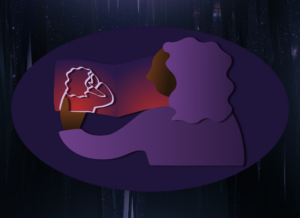When my grandfather was diagnosed with stomach cancer, my mother decided not to tell him. Instead, she told him he was having surgery for an ulcer. We went along with it until the pathology report showed that the cancer was not, as we had hoped, in its early stages, but that he would need further therapy. Now, my mother tells him he has “little cancerous cells,” providing as little detail as she can.
She doesn’t think there’s a reason to tell him. He agreed to have the chemotherapy and radiation, and he wouldn’t understand the more complex medical jargon. Besides, he’s not dying. Chances are, he’ll get through chemotherapy and radiation alive and kicking, none the wiser that the “little cancerous cells” were actually a malignant Stage IIIB tumor.
My mother decides how much he knows—he’s her father, and she has power of attorney, so she can chose whether or not to keep him in the dark. But when she told me about doctors who laughed and sided with her when she asked them not to say the word “cancer,” it brought up another question—how much does a patient have the right to know?
This comes up all the time in healthcare. When I shadowed in the pediatric intensive care unit, the child life therapist told me about a 15-year-old boy who wasn’t told he had cancer even though he was getting chemotherapy and was seeing an oncologist. As an EMT, I’ve seen paramedics hem and haw, stalling rather than telling a patient they were having a heart attack. I saw a doctor look at a boy’s MRI and sigh at the tumor, then walk into the boy’s room smiling and say he hadn’t had time to look at the scans yet.
There are times at which the right thing to do is clear-cut. When an Alzheimer’s patient asked me if her long-dead husband would meet us at the hospital, I told her I didn’t know since I knew she would only ask again a moment later and there was no reason to make her relive that trauma. When a 42-year-old single mother wants to know if she should be making plans for her children’s care after finding a lump in her breast, telling her the truth ensures that her children are cared for.
What about the grey areas? Can we wait to give a depressed patient bad news if it could damage their condition? Should we tell paranoid patients about changes in their drug regime? Do we deliver bad news before Christmas in the interest of transparency, or do we wait and let a family enjoy their holiday?
To attempt an answer, we need to examine what can happen if we avoid the truth. It’s true that it might help a patient in the short term to hide information, but nobody can hide the truth forever. Finding out too late could be so devastating to the patient that the harm would be greater in the long-term. In these cases, keeping the truth from a person is a selfish act, designed to keep the would-be bearer more comfortable. That’s unforgivable. In other cases, it’s a favor to them—letting them enjoy a few more days in ignorance before dropping the devastating news. There’s a balance between what is gained in the time one spends in the dark and what is lost. We walk a balance-beam between cautious optimism and delusion, but it’s so thin we tend to fall off and land too far on one side.
We have to take it step-by-step, or case-by-case. For the boy with the spinal tumor, I don’t believe the doctor was doing harm by not telling him. The neurologist would be there within an hour to explain the diagnosis. The father would get an extra hour to watch his son sleep without knowing he was going to die. For the teenage boy with cancer, he would have felt confused and betrayed, which would be outweighed by any worry that was offset by his parents’ secrecy. The harm of not telling him what was going on would have been significant.
These are all my opinions, and someone else might feel differently and make their own decision. I wish there were clear-cut answers that we could make into a flowchart for medical professionals to follow, but ethics don’t work that way.
Instead, we stumble around, hopefully messing up less and less as we go. It’s all any of us can do.
Rebecca is a freshman in the College.






